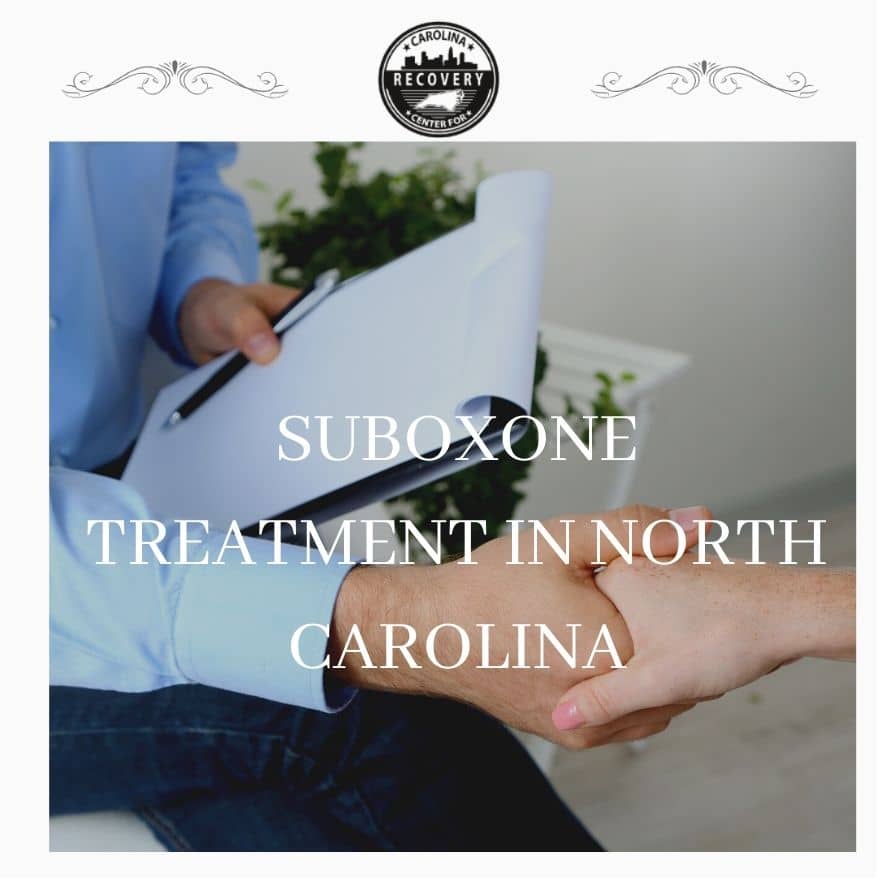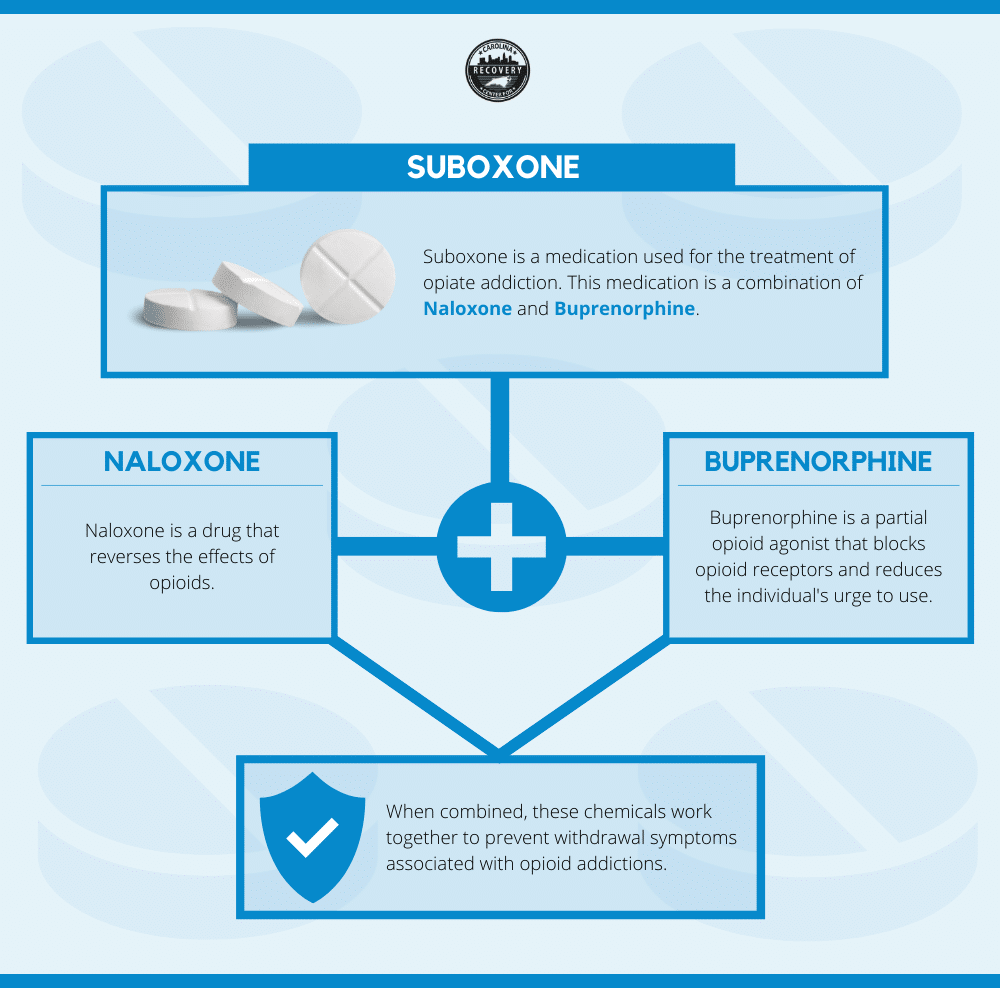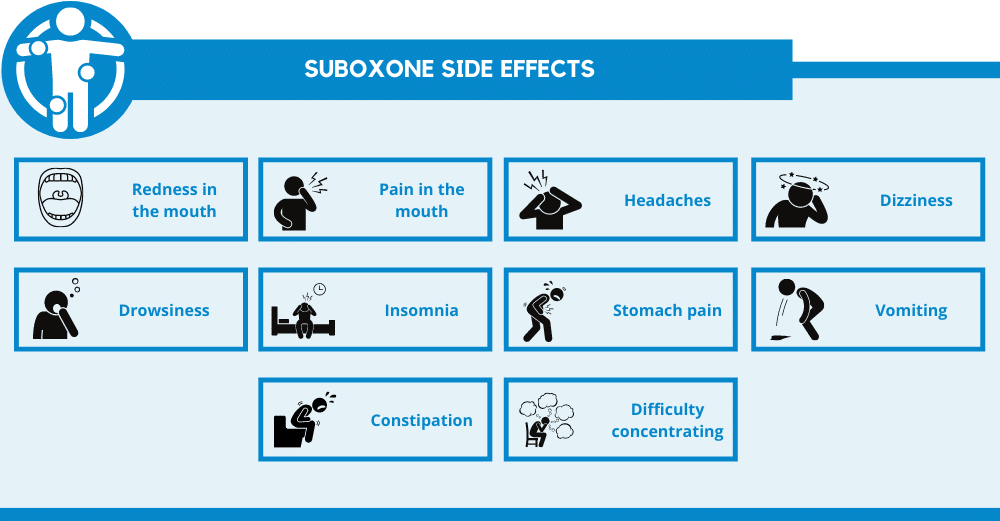How to Recover From Opioid Addiction With Suboxone Treatment in North Carolina

Medically Verified: 2/1/24
Medical Reviewer
Chief Editor

All of the information on this page has been reviewed and verified by a certified addiction professional.
Opioids are some of the most addictive drugs on the planet, and getting sober is not easy. Fortunately, the U.S. Food and Drug Administration (FDA) has approved several medications for the treatment of opioid use disorder. One of the most widely used medications is Suboxone.
Suboxone treatment programs in North Carolina combine the medication with custom-tailored treatment plans to help individuals of all walks of life achieve sobriety and optimal health.
What is Suboxone and How Does It Work?
Suboxone is a combination medication that contains buprenorphine and naloxone. It is available for prescription only and can only be prescribed by qualified medical providers who have completed specialized training. Suboxone has been approved by the FDA to treat opioid use disorder.[1] The medication comes in the form of a film that is dissolved under the tongue (sublingual) or dissolved in between the tongue and cheek (buccal).
Buprenorphine is a partial opioid agonist-antagonist. It binds to opioid receptors, occupies them, and partially activates them. This helps treat opioid withdrawal symptoms and minimize drug cravings. Naloxone, on the other hand, is an opioid antagonist that is used to reverse the effects of an opioid overdose. This medication is added to Suboxone to prevent abuse of the medication by creating a “ceiling effect.” A ceiling effect occurs when a medication or drug stops producing effects after a certain point.[2] This means people cannot get high on Suboxone, making people less likely to abuse it.
Suboxone is used during detox and treatment to help patients cope with cravings and withdrawal symptoms while they heal from addiction. It is most effective when combined with counseling, behavioral therapy, and peer support–an approach known as medication-assisted treatment (MAT).

Suboxone Side Effects
Like other medications, Suboxone may cause side effects. However, most side effects are minor, and the medication is used because the benefits outweigh the risks. Common side effects include:[1]

- Redness in the mouth
- Numbness or pain in the mouth
- Headaches
- Dizziness
- Drowsiness
- Insomnia
- Stomach pain
- Vomiting
- Constipation
- Difficulty concentrating
Patients who are participating in Suboxone treatment in North Carolina will have regular doctor’s visits to discuss any side effects. They also have access to an on-site medical team that can evaluate any side effects and provide medical care.
Opioid Detox With Suboxone
Patients can begin taking Suboxone 12-24 hours after their last dose of opioids.[1] It’s important that Suboxone isn’t taken too early because it can cause severe withdrawal symptoms if combined with opioids. Patients are often started on a high dose of Suboxone during detox because that is when their symptoms will be the worst.
Suboxone can help alleviate withdrawal symptoms and eliminate the need for inpatient detox services. Unless a person is experiencing severe withdrawal symptoms or is addicted to another substance, many will only have to spend a day or two in detox. Most patients can begin treatment as soon as they start taking Suboxone.
Medication-Assisted Treatment (MAT) With Suboxone
Suboxone is intended to be used in tandem with a comprehensive, individualized treatment program. Medication-assisted treatment (MAT) is thought to be the most effective approach toward treating opioid addiction. It can increase treatment retention, reduce relapse rates, and help patients focus on their therapy and healing rather than their cravings or withdrawal symptoms.[3]
Patients may attend inpatient or outpatient rehab where they participate in a multitude of therapies and services, including:
- Behavioral therapy
- Motivational therapy
- Holistic therapy
- Family therapy
- Life skills therapy
- Nutritional counseling
- 12-Step facilitation
- Relapse prevention therapy
- Vocational training
- Recovery coaching
Therapy is held in private, one-on-one sessions as well as small and large groups. Patients are encouraged to develop meaningful relationships with their peers and rely on their peers for emotional support.
Aftercare and Medication Management
After completing inpatient or outpatient rehab, patients work with their therapist to create an aftercare plan. Aftercare services help provide continuing support to recovering individuals, long-term accountability, and medication management. Aftercare may consist of:
- Sober living
- Alumni program
- 12-Step group
- Counseling
Patients will also be expected to see their doctor on a monthly basis to discuss their symptoms, recovery, cravings, and medication. Suboxone can only be provided on a 30-day supply so patients must continue seeing their doctor to receive refills.
Very few patients will need to continue taking Suboxone for the rest of their lives. Most can taper off the medication once they have developed a solid foundation in recovery and are demonstrating an intrinsic motivation to stay sober.
Find a Suboxone Treatment Program in North Carolina Today
If you or a loved one are addicted to opioids, Suboxone treatment may be right for you. All you have to do to find out is pick up the phone and call one of our dedicated addiction specialists for help. We will verify your insurance coverage, assess your needs, and help you determine whether or not Suboxone is right for you. Don’t wait any longer. Call now to speak with an addiction specialist.
References:

